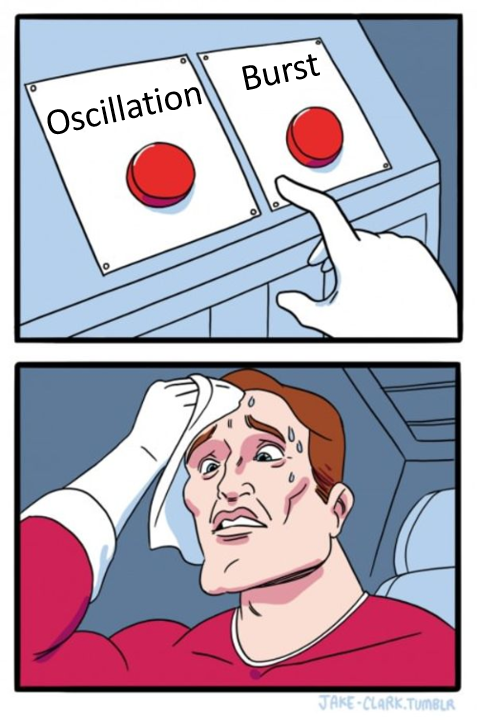 Beta activity in motor cortex is one of the most studied signatures of movement-related neural activity. When averaged over trials, beta power slowly decreases prior to movement (beta event-related desynchronization, ERD), and then sharply increases following movement (beta rebound). This pattern of activity lead to the classical view that beta represents an idling state of motor cortex, or promotion of the status quo. The idea was that at rest, there is a baseline level of beta activity - the motor cortex is idling. As a movement is prepared, beta activity slowly decreases, releasing the "brakes" on movement production. Finally beta amplitude reaches a low enough point that the movement can be performed. Following the movement there is a rebound of activity, promoting the new status quo. These theories rest on the idea that beta occurs as an oscillation in individual trials with slowly changing amplitude, and the pattern of amplitude modulation in individual trials resembles that seen in the trial-averaged data.
Beta activity in motor cortex is one of the most studied signatures of movement-related neural activity. When averaged over trials, beta power slowly decreases prior to movement (beta event-related desynchronization, ERD), and then sharply increases following movement (beta rebound). This pattern of activity lead to the classical view that beta represents an idling state of motor cortex, or promotion of the status quo. The idea was that at rest, there is a baseline level of beta activity - the motor cortex is idling. As a movement is prepared, beta activity slowly decreases, releasing the "brakes" on movement production. Finally beta amplitude reaches a low enough point that the movement can be performed. Following the movement there is a rebound of activity, promoting the new status quo. These theories rest on the idea that beta occurs as an oscillation in individual trials with slowly changing amplitude, and the pattern of amplitude modulation in individual trials resembles that seen in the trial-averaged data.
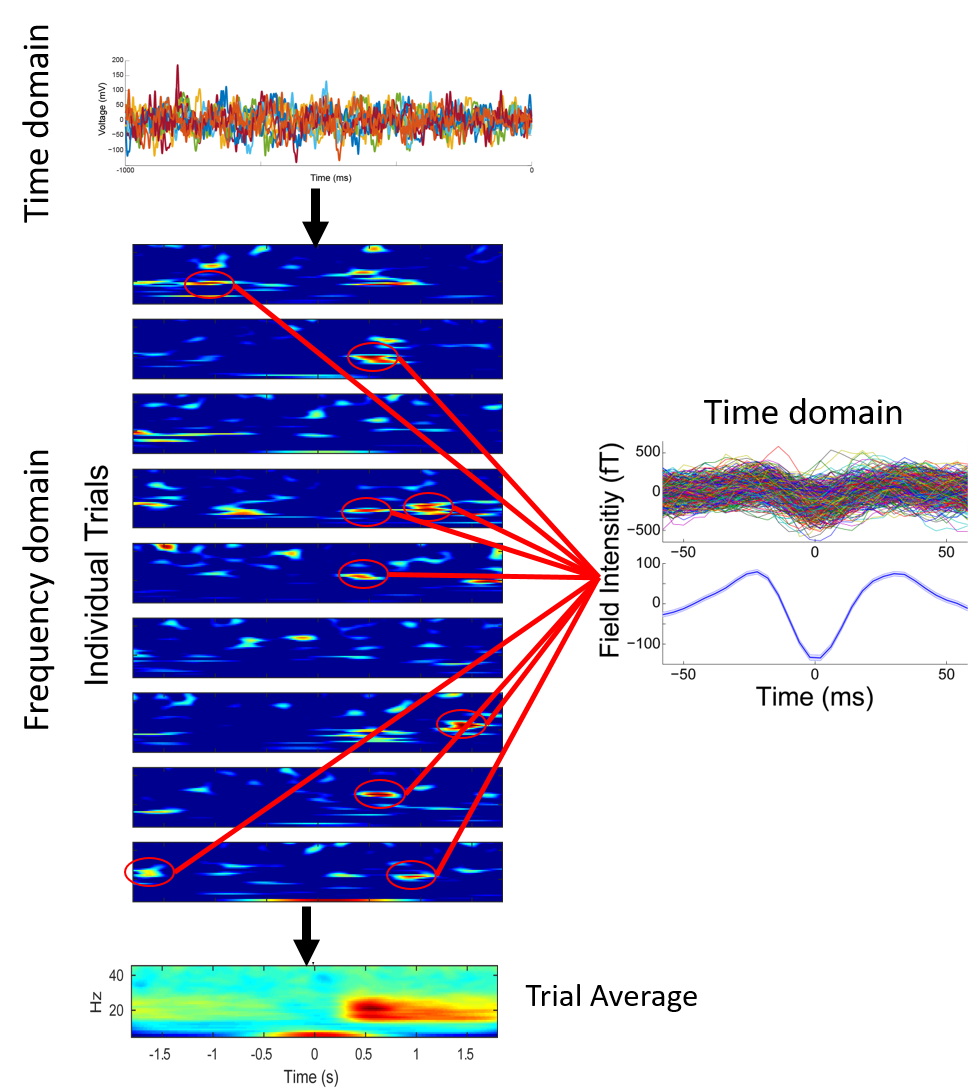
However, it has recently become apparent that oscillatory beta activity in single trials actually occurs in discrete, transient bursts. These short-lasting, high-powered bursts of activity only appear to be sustained oscillations when averaged over multiple trials. The timing of these bursts predicts response times, and indexes movement errors. This insight provides an exciting opportunity to examine beta activity on a trial-by-trial basis and directly relate it to forthcoming and ongoing motor behavior. Our group is taking a comprehensive approach to tackling this challenge:
- Combining computational modeling, functional connectivity, and laminar MEG analyses to determine how beta bursts are generated
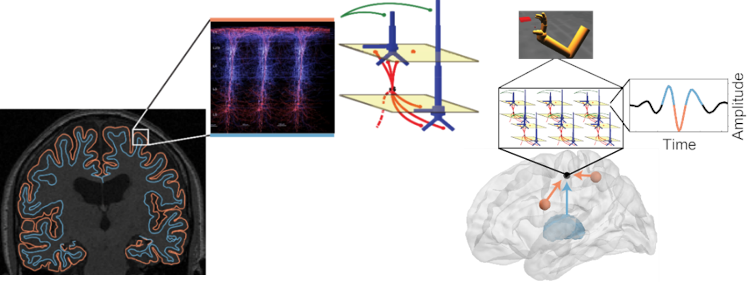
- High precision MEG analysis of beta activity coupled with markerless pose tracking from video to explore the functional role of beta bursts
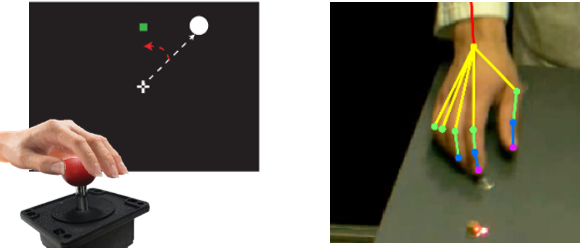
- Longitudinal testing of the relationship between structural connectivity, beta bursts, and motor skill in development

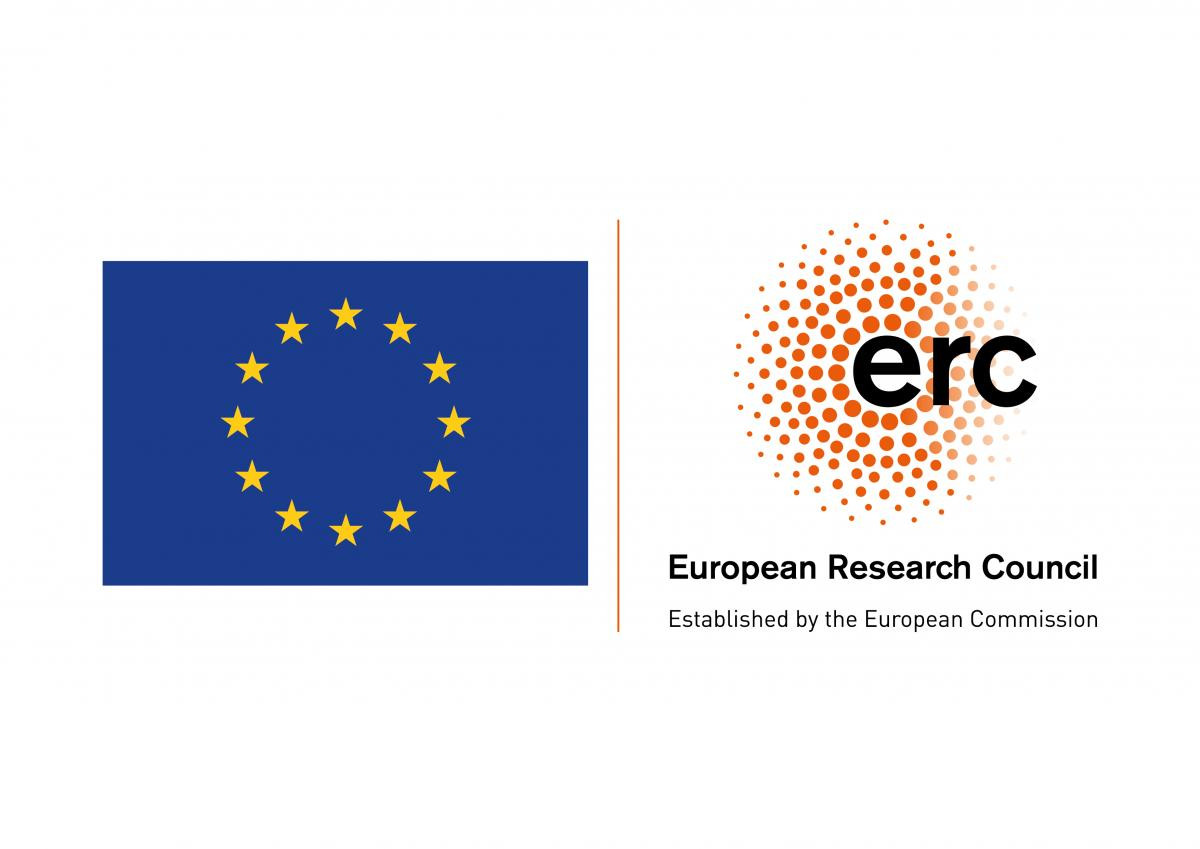 This project has received funding from the European Research Council (ERC) under the European Union’s Horizon 2020 research and innovation programme (grant agreement No 864550)
This project has received funding from the European Research Council (ERC) under the European Union’s Horizon 2020 research and innovation programme (grant agreement No 864550)